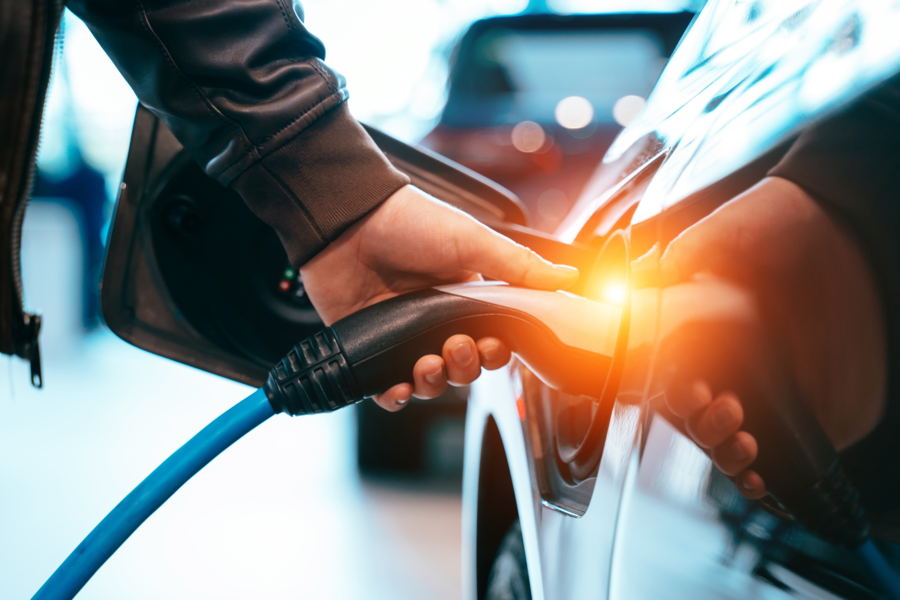Are you looking for a new car?
Once again, the number of newly registered electric vehicles has increased this year; but what about the actual sustainability of e-cars? And how much money do you have to budget for the purchase of an electric car? In this article we explain the most important pros and cons of electric mobility.
Although electric vehicles continue to triumph, cars with an internal combustion engine still make up the majority of Luxembourg's vehicle fleet. Nowadays, however, almost every car brand offers at least one electric model. This is no wonder, as electric cars play a central role in the energy transition effort.
The Batteries
There is still room for improvement in the production of electric cars and the disposal of their batteries. However, recycling processes for lithium-ion drive batteries are already technologically possible and available today. Up to 95 % of their functional materials including cobalt, nickel and copper can be recovered from the batteries through recycling.
Furthermore, the battery of an e-car will only be ready for disposal after more than 20 years of average use. Did you know that drive batteries can be easily recycled after they are no longer powerful enough for use in cars? As a rule, these batteries still have an energy content of 70 to 80 % of their original power. So, in their so-called second life, such batteries can be used for another several years as stationary electricity storage, as with electricity generated by a photovoltaic system.
In addition, according to the law on batteries, manufacturers or battery retailers must take them back and follow a prescribed recycling procedure. Within the EU, components comprising 50% of the weight of batteries must be recycled. The EU is also continuously investing in battery research and development to make manufacturing processes more sustainable.
E-car investment: reduce your ecological footprint
If you compare combustion engines with electric cars, you cannot avoid the issue of CO2 emissions. While it is no longer a secret that diesel vehicles in particular do poorly in terms of Co2 emissions, electric car drivers can claim to improve the Co2 balance of road traffic. Even though the production of battery cells for electric cars is still quite energy-intensive, this Co2 disadvantage is offset in the 50,000 to 100,000 km range.
Internal combustion engine or e-car? Carboncounter.lu helps you make your decision!
The website allows you to compare the Co2 emissions and total cost of vehicles available on the Luxembourg market.
Discover the R-Eco personal loan
How suitable are electric cars for everyday use?
Electric cars still provide a lower range than cars with internal combustion engines. The actual range of an e-car is on average 15-20 % less than what the manufacturers state. In addition, there is the influence of the seasons. In winter, the ranges of electric cars are lower than in summer. Of course, vehicle ranges are also influenced by individual driving behaviour.
However, the car market is offering more and more e-cars with real ranges of 300 to 400 km and there are now electric cars with different battery sizes, so you can decide according to your personal needs.
Charging infrastructure on the rise
At first glance, an e-car seems to require more preparation and planning. The use of public charging points may be initially unfamiliar and more time-consuming for some. In 2017, Luxembourg launched the installation of a network of public charging stations under the name of Chargy, which now includes over 700 points across the country. Chargy has set the goal of creating 1,600 parking spaces for electric mobility. Fast charging stations have also been available in Luxembourg since last year. By 2023, the number of these ultra-fast installations is expected to increase to 88. The "SuperChargies" will then be available at a total of 19 petrol stations and motorway service stations, as well as on the Grand Duchy's main roads.
Do you have questions regarding this topic or need help financing your new car?
Make an appointment with a Raiffeisen advisor near you or contact our online branch at +352 2450 1000.
Any questions?
Make an appointment



